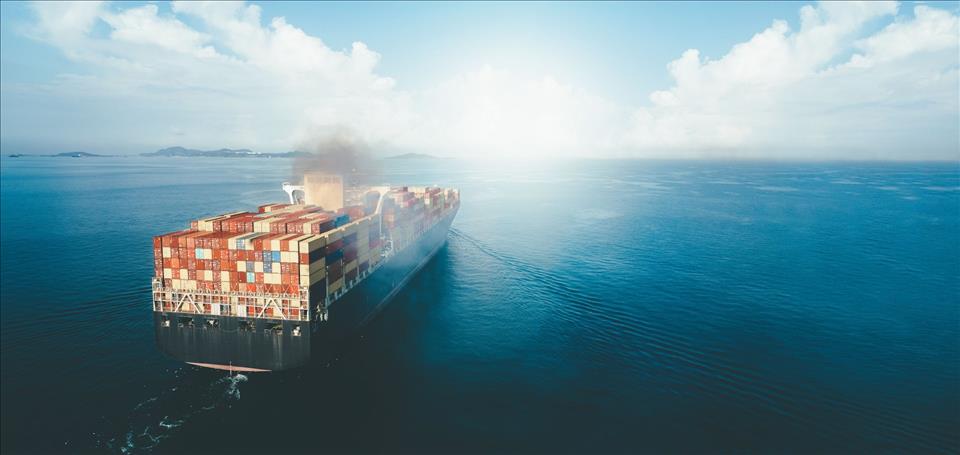
A 'Google Maps For The Sea', Sails And Alternative Fuels: The Technologies Steering Shipping Towards Lower Emissions Podcast
The race is on to reduce these emissions, and quickly, to meet the Paris agreement targets. In this episode of The Conversation Weekly podcast , we find out what technologies are available to shipping companies to reduce their carbon emissions – from sails, to alternative fuels or simply taking a better route.
“ We live in a world of information. The biggest challenge is knowing how to use it,” says Daniel Precioso, a data scientist at IE University in Madrid, Spain. He's part of a team of researchers that developed a platform called Green Navigation , what he calls a“Google maps for the sea”. Pulling together publicly available data on wind, waves and ocean currents, it can suggest new routes to ship captains to optimise their journey from A to B and reduce carbon emissions.
Precioso presented the project in November 2024 in Dubai at the Prototypes for Humanity exhibition organised by Dubai Future Solutions as a showcase for young researchers designing solutions for global challenges.
Pressure mountingRoute optimisation software like Green Navigation is seen as a transition between the status quo and a future where ships will move to using alternative, greener fuels.
The UN's International Maritime Organization (IMO) has a target for zero emissions from shipping by 2050 and a strive target of 30% reductions by 2030 relative to 2008 levels.
In early April, IMO member states will meet to discuss a proposal to introduce a flat rate tax on carbon emitted by commercial shipping. If adopted, shipping companies would have to pay a levy, the price of which is still being worked out, for every tonne of carbon dioxide they emit. The money would sit in a fund run by the IMO, which would be used to help developing countries reduce maritime emissions.
The proposal is supported by 47 countries, and it's being pushed particularly by island nations most at risk from climate change, and flag states, those countries such as the Bahamas, Liberia and the Marshall Islands, where a lot of international ships are registered.
What's the alternative?If the flat tax is adopted it would add an extra financial incentive for ships to reduce their emissions and potentially move to greener alternative fuels. But Alice Larkin, professor of climate science and energy policy at the University of Manchester in the UK, says unfortunately it's not currently cost efficient to switch away from fossil fuels.
A number of alternative fuels are being explored, such as green hydrogen, biodiesel, biomethane and green ammonia. But Larkin says no alternative fuel is currently emerging as a frontrunner, making it difficult for shipping companies to know what to invest in and creating inertia in the transition to greener fuels.
She stresses the need to reduce emissions in the shorter term to help keep the world below 1.5 degrees of warming. Options include strategies like route optimisation, sail, or wind-assist technologies, or for ships to travel at a slower speed. Larkin and her colleagues modelled the potential impact from these technologies and found combinations of these technologies could reduce a ship's emissions by up to a third.
Listen to the full episode of The Conversation Weekly to hear conversations with Daniel Precisio and Alice Larkin.
This episode of The Conversation Weekly was written and produced by Gemma Ware and Mend Mariwany. Sound design was by Eloise Stevens and theme music by Neeta Sarl.
Listen to The Conversation Weekly via any of the apps listed above, download it directly via our RSS feed or find out how else to listen here .

Legal Disclaimer:
MENAFN provides the
information “as is” without warranty of any kind. We do not accept
any responsibility or liability for the accuracy, content, images,
videos, licenses, completeness, legality, or reliability of the information
contained in this article. If you have any complaints or copyright
issues related to this article, kindly contact the provider above.


















Comments
No comment